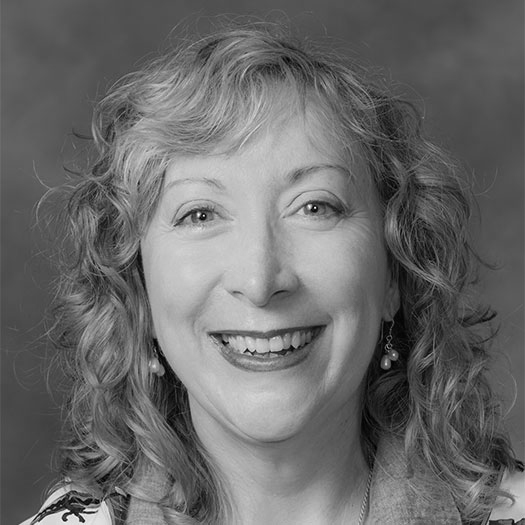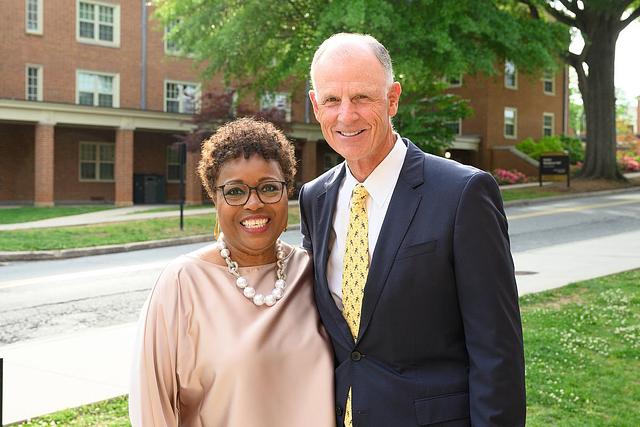
Wake Forest and the Alumni Council named Syd Kitson (’81, P ’08) and Barbee Myers Oakes (’80, MA ’81) to receive the 2025 Distinguished Alumni Awards. They were recognized on April 25 for their service to the University and for exemplifying Pro Humanitate.
Syd Kitson (’81, P ’08)
For more than a decade, Syd Kitson pursued his dream to build America’s first solar town in southwest Florida. He envisioned a classic American hometown that emphasized community, nature, sustainability, clean energy and technology.
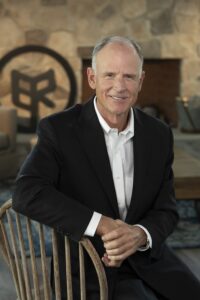
Friends told him it was a bad idea, but he persevered. “My father used to say, ‘Don’t ever be afraid to fail.’ More people have good ideas that don’t go forward because they’re afraid to fail,” says Kitson, chairman and CEO of Florida-based real estate firm Kitson & Partners. “I’ve always believed that it’s the intersection between dreaming and doing that can change the world.”
Kitson realized his dream in 2018 when the first residents moved into Babcock Ranch, near Fort Myers. Today, the town has about 11,000 residents — and is growing steadily toward a projected population of 50,000 — as well as schools, shopping centers, a health center and recreational facilities. An 870-acre solar farm and the country’s largest solar-plus-battery storage system are already providing enough renewable energy to power the town when it’s finished.
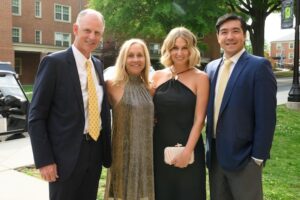
But Kitson is most proud of what he didn’t build. When his firm purchased the 91,000-acre Babcock property, it sold 73,000 acres of old-growth forests and wetlands, home to abundant wildlife and endangered species, to the state of Florida and Lee County for a nature preserve. It was the single largest land conservation deal in the state’s history. Kitson also set aside half of the town land for parks, trails, wetlands and community gardens.
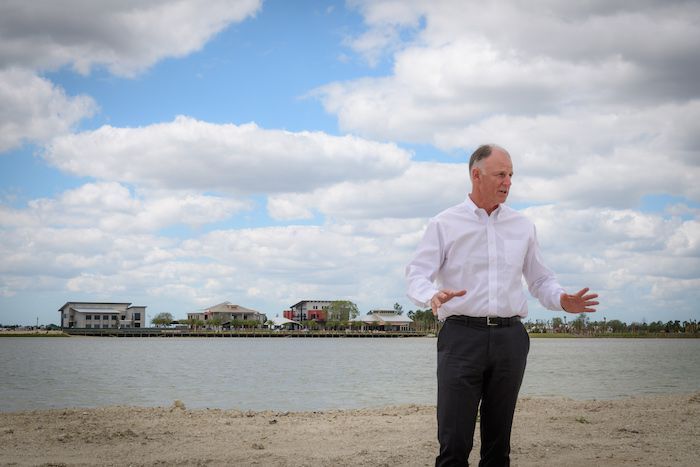
“This was an opportunity to create a new town but do it in the right way from the beginning to work with the environment and preserve most of the land and do something special,” Kitson said in a Wake Forest Magazine profile in 2018.
Wake Forest recognized Kitson as an “environmental guardian whose work was shaped by the values of his alma mater and his tireless work ethic.” In 2023, he was named Time magazine’s Dreamer of the Year.
A native of New Providence, New Jersey, Kitson came to Wake Forest to play football and was an offensive lineman and team leader on the 1979 Tangerine Bowl team. He played in the NFL for five years before starting his real estate career.
Barbee Myers Oakes (’80, MA ’81)
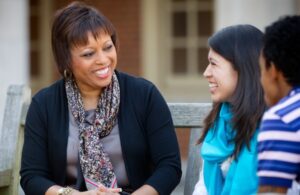
Barbee Myers Oakes recalls a vivid moment sitting with her grandfather on his porch in 1985. Oakes, who earned a Ph.D., was telling him about her new faculty appointment at Penn State. That’s when she learned that her grandfather, David Lee Myers, helped clear the land for Wake Forest to be built in Winston-Salem, never imagining “my granddaughter would be allowed to go to that white school one day.”
Oakes wrote about that in Wake Forest Magazine. Her story of breaking barriers has influenced Wake Forest students through the years as Oakes moved from being a member of a farming family in East Bend, North Carolina, to undergrad and grad student to professor to administrator and leader. “In my heart I am as much a daughter of Wake Forest as anyone can be,” she says.
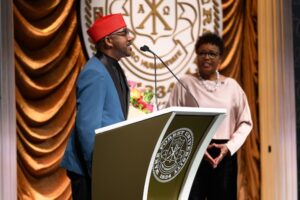
She arrived at Wake Forest as the first in her family to go to a four-year college and found administrators and faculty who supported her, including in health and exercise science, where Professor Paul Ribisl (P ’89, ’91) encouraged her to become the first Black student in the department’s graduate school program.
After teaching at other universities, Oakes returned. She became Wake Forest’s director of the Office of Multicultural Affairs from 1995 to 2009, then assistant provost for diversity and inclusion and later chief diversity officer. She left to work as chief diversity officer at the University of Nevada, Las Vegas from 2017 to 2021. Now retired, Oakes lives in Winston-Salem.
Wake Forest recognized how Oakes “positively impacted college students’ lives for more than 30 years;” helped cultivate academic and personal success among all students, especially young people of color; developed the framework of a diversity, inclusion and equity commitment to her alma mater and became the first Black woman with a Ph.D. to join the influential American College of Sports Medicine.
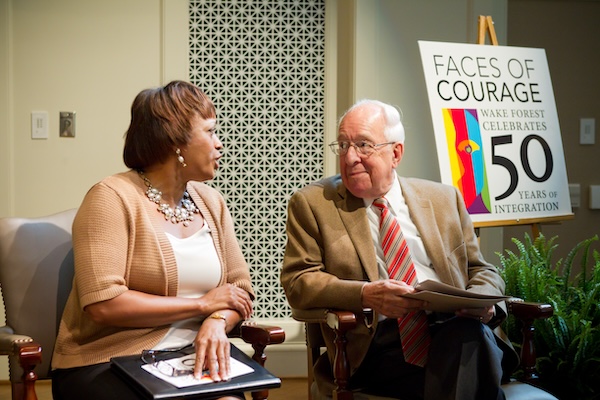
“It was important to me to help enlarge people’s vision for what was possible in their lives, like I had a spirit of exhortation,” Oakes says. “My charge was to encourage them and inspire them and believe in them.”
She says her mission has been a big one — “creating a sense of belonging for everyone. That’s always been at the heart of what I’ve done.”
